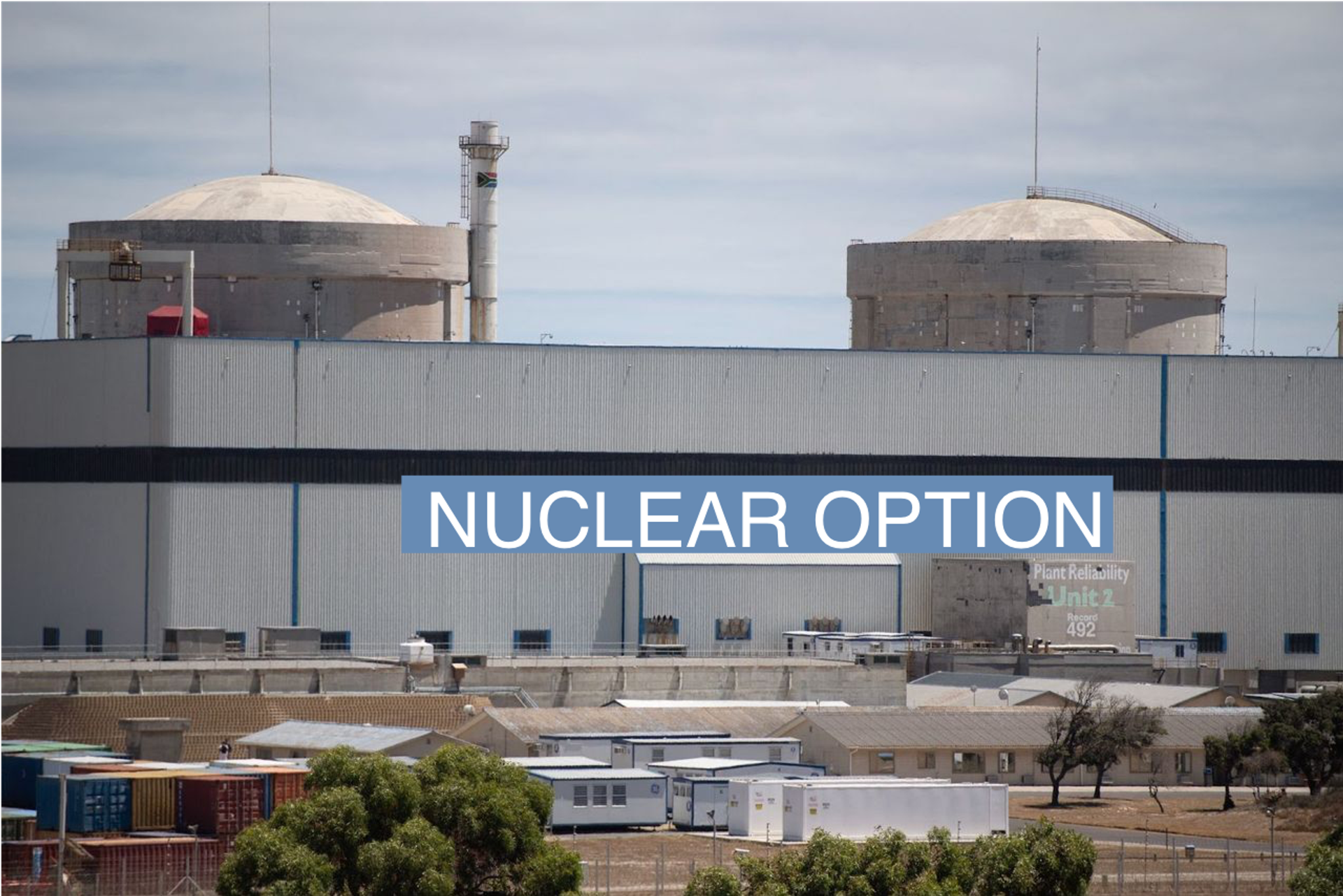The News
ACCRA, Ghana — The United States and Russia are locked in a race against China, France, and South Korea to build the first nuclear power plant in Ghana.
The West African country is among several nations on the continent looking to nuclear power as a low carbon source of energy as they seek to broaden access to electricity.
Ghana is turning to nuclear power to complement its existing mix of hydro, thermal and renewable energy. The winner of the ongoing bidding process will be announced at the end of 2024 by outgoing president Nana Akufo-Addo, Stephen Yamoah, executive director of Nuclear Power Ghana, which is supervising the project, told Semafor Africa.
Yamoah said a target to build the plant by 2030 would be missed because “we still haven’t settled on a vendor.” Construction, which is expected to last five years, is due to begin in 2026.
Ghana is projecting that nuclear energy will make up 5% of the country’s energy mix by 2030 and 35% by 2070, according to Dr. Robert Sogbadzie, deputy director of power at the Ministry of Energy. “Every country is coming in based on its proposal,” he said, stressing that the cost and technology used will be the determining factors, rather than solely politics.
Know More
South Africa has the continent’s only nuclear power plant but Uganda, Rwanda and Kenya have in the last year announced plans to develop this energy source.
Ghana laid out its current nuclear plans in 2015 with the expectation of having its first commercial nuclear power plant in 2030.
The current nuclear program took off in 2008 after a nationwide power crisis in 2006 and 2007. The plan then was to have a nuclear power plant by 2018, but that target was revised due to a lack of political and financial commitment from successive governments. “Having an interest in pursuing a nuclear program is one thing, and understanding what it takes to pursue a nuclear program is another thing,” said Yamoah.
Electricity demand is estimated to have grown by 7%–10% a year since 2010, according to Ghana’s energy ministry. As of 2020, 85% of the population had access to electricity.
Nana Oye’s view
Ghana will now have to choose between competing options which analysts say range from large-scale nuclear power plants to small modular reactors.
People who are privy to the ongoing process are giving the US an edge because of the relationship between the two countries. But another school of thought says the Russians may be favored because the Soviet Union built a research reactor in the 1960s under Ghana’s first president, Kwame Nkrumah.
Russia also has a track record. Its state-owned nuclear company, Rosatom, has signed agreements with a number of countries — including neighboring Burkina Faso, Egypt and South Africa — to develop nuclear technology.
Authorities here in Ghana are currently struggling to provide stable power for citizens. While electricity generation and access have improved in the country in the last decade, inefficiencies in electricity distribution and high demand are causing a major shortfall in power supply. That has led to frequent, prolonged power cuts which Ghanains have endured since last year.
The situation led to the president giving a directive earlier this month to the power generation company to halt the export of electricity to neighboring countries Togo, Burkina Faso, Benin and Côte d’Ivoire to focus on local demand.
Frustrated Ghanaians have compared the current electricity problems to the energy crisis that gripped the country between 2012 and 2016, when the opposition was in power and the country was governed by former president John Mahama. A popular term used then — “dumsor,” which roughly translates as “lights out” — has reemerged.
“What we’re experiencing now is the same as what we experienced under Mahama,” Amanda Nkrumah, an entrepreneur in Kumasi, lamented. “We just want a timetable like what we got then to plan because it is getting really frustrating to not have power for 12 hours in a day. How do we plan?” said Nana Poku, a tailor based in Accra.
Room for Disagreement
Ben Boakye, executive director of the Africa Center for Energy Policy think tank, said inefficiencies within Ghana’s energy sector meant independent power producers were not paid properly. That could undermine the country’s nuclear aspirations because it would be difficult to attract private operators to run the plant, he said.
“The way the power sector is structured today, thinking about nuclear is only idealist thinking because no one is going to put in money when the power sector doesn’t pay,” Boakye told Semafor Africa. He said Ghana may need to “revise” its plans for the plant “because the guarantees are not there.”
The View From Burkina Faso
Neighboring Burkina Faso signed an agreement with Russia last October for the development of a nuclear power plant. Russia will, under the memorandum of understanding, help develop nuclear infrastructure and technology in the West African country, while also providing assistance in nuclear safety and security.
Notable
- The pursuit of nuclear energy by African countries is a “bad idea,” argues Hartmut Winkler, a physics professor at the University of Johannesburg, in The Conversation. He considers the biggest risk to be in countries accepting low interest financing from Russia to build a plant, only to be saddled with repayments for several years.

